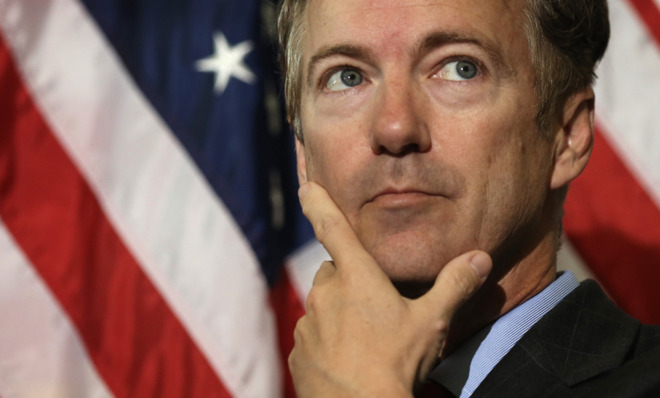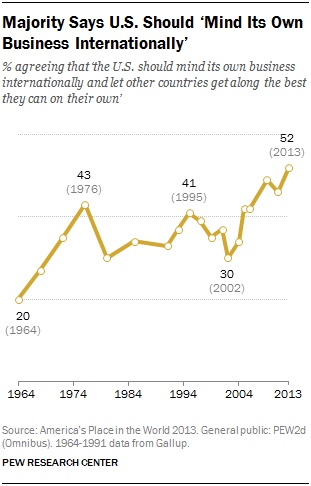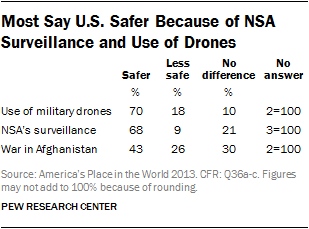Can Rand Paul avoid the Neville Chamberlain trap?
Paul is a noted non-interventionist in a modern Republican Party that despises Winston Churchill's predecessor


A free daily email with the biggest news stories of the day – and the best features from TheWeek.com
You are now subscribed
Your newsletter sign-up was successful
Sen. Rand Paul (R-Ky.) is having a moment. It's not clear if "establishment" Republicans are concerned that the freshman senator with no previous political experience will crash their 2016 presidential primary, but the political press is starting to take Paul's presumed presidential ambitions seriously.
This started before Paul convincingly won the closely watched CPAC straw poll on Sunday — which, as Jon Terbush notes, doesn't mean all that much for 2016, especially since Paul is the son and political heir of frequent CPAC straw poll winner Ron Paul. Rand Paul's biggest obstacle to the GOP nomination probably wasn't an option on the CPAC poll, though: A long-dead British prime minister.
The Paul-as-frontrunner narrative started about two weeks ago, when The Washington Post's Chris Cillizza named him the favorite to win the next GOP presidential nomination, largely because "Paul is more likely to emerge victorious from the movement conservative primary than any of the potential candidates seeking the establishment conservative banner." After noting Paul's political skills and access to the Ron Paul donor and activist network, Cillizza issued a warning to reporters and politicians alike: "Dismiss the Kentucky Senator as a fringe candidate at your peril."
The Week
Escape your echo chamber. Get the facts behind the news, plus analysis from multiple perspectives.

Sign up for The Week's Free Newsletters
From our morning news briefing to a weekly Good News Newsletter, get the best of The Week delivered directly to your inbox.
From our morning news briefing to a weekly Good News Newsletter, get the best of The Week delivered directly to your inbox.
"Paul is in a stronger position than many in the media recognize," agreed Peter Beinart, at about the same time. Beinart, writing in The Atlantic, noted the more mundane details about Paul's organizational and ideological strengths in the first two voting states, Iowa and New Hampshire. If Paul runs, he'll automatically be "the leading anti-establishment candidate in the GOP field," Beinart predicted. But the establishment is weak and divided, and "on issues from NSA surveillance to drug legalization to gay marriage, the GOP is moving in [Paul's] direction."
The key thing Beinart left out was foreign policy. Paul's opposition to military intervention abroad is probably his biggest obstacle to winning the presidential nomination of a party filled with foreign policy hawks. That gap between Paul and his party grew even larger after Russian President Vladimir Putin invaded Ukraine's Crimea province — a point hammered home during CPAC.
One conservative hawk after another criticized Putin's actions and, more pointedly, accused President Obama of either responding too weakly to the invasion or sharing responsibility in it by not intimidating Putin earlier. The young libertarians that crowd CPAC are Paul's natural constituents, says Slate's David Weigel. But "conservatives had been hating the Russians long before they had been Standing With Rand."
Paul mostly avoided the subject of foreign policy at CPAC, devoting most of his speech to NSA surveillance and upholding the Constitution. In contrast, Sen. Marco Rubio (R-Fla.), a potential top "establishment" candidates for 2016, was especially vocal about projecting American strength abroad. Sen. Ted Cruz (R-Texas), considered one of Paul's rivals for the "movement conservative" title, hit some notably hawkish notes, too.
A free daily email with the biggest news stories of the day – and the best features from TheWeek.com
Cruz was more explicit after CPAC ended. "I'm a big fan of Rand Paul; he and I are good friends," he said on ABC's This Week. "I don't agree with him on foreign policy.... I think U.S. leadership is critical in the world, and I agree with him that we should be very reluctant to deploy military force abroad, but I think there is a vital role, just as Ronald Reagan did." The New York Times' Jonathan Martin sees this as a significant line in the sand:
The Washington Post's Jennifier Rubin agrees. For all the talk about a Republican civil war, she says, "frankly, I don't think the GOP has been this unified on foreign policy since Obama took office." Paul is the odd man out, she adds, "and if political handicappers would follow the foreign policy debate a bit more closely, they'd notice that Rand Paul has further isolated himself on the right." Then Rubin gave Paul the Republican equivalent of the kiss of death:
The notion that we should "nation build at home" — voiced by the president and by Rand Paul — is now akin to Neville Chamberlain's "peace for our time," a sign of utter and dangerous cluelessness on national security. [Washington Post]
The caricature of Chamberlain as an obsequious Hitler appeaser isn't all that historically accurate, as The Atlantic's Geoffrey Wheatcroft and Slate's Nick Baumann explained separately last year. But it is a commonly repeated truth in modern conservative circles, where Winston Churchill is revered as a giant of history. (If you'll recall, one of the first Obama scandals, as far as the right is concerned, was when the Obama White House returned a loaned bust of Churchill to Britain's U.S. ambassador.)
Just as with Chamberlain and Nazi appeasement, though, the idea that Paul is a "radical isolationist" isn't really accurate, says Matt Berman at National Journal. In a speech in January, Paul talked up the importance of diplomacy and took at shot at neoconservatives, saying as far as they're concerned, "everyone who doesn't agree with them... is the next Chamberlain. To this crowd, anyone who doesn't clamor first for the military option... is somehow an isolationist."
"Paul may laugh off the Chamberlain labeling," Berman says, "but until he really makes a point of specifically drawing out his response to a foreign policy crisis, he just leaves space for others to define him." The situation in Ukraine, he adds, could be Paul's best shot "to try to prove that he's not an isolationist, an appeaser, that he's capable of being tough when that's what's called for."
As it turns out, Paul is trying to thread just that needle. "I think those who would try to argue that somehow I'm different than the mainstream Republican opinion are people who want to take advantage for their own personal political gain," Paul said on Fox New Sunday. "I'm a great believer in Ronald Reagan. I'm a great believer in a strong national defense."
Talking about Reagan and strength abstractly is one way Paul might get past the Neville Chamberlain trap, but he shows the weakness of trying to have it both ways in a Sunday op-ed in TIME. "Let me be clear: If I were president, I wouldn't let Vladimir Putin get away with" invading Ukraine, he says. "Putin must be punished for violating the Budapest Memorandum and Russia must learn that the United States will isolate them if they insist on acting like a rogue nation." But, he continues:
This does not and should not require military action. No one in the United States is calling for this. But it will require other actions and leadership, both of which President Obama unfortunately lacks. I recommend a number of specific and decisive measures to punish Putin for his ongoing aggression. [TIME]
Paul's "decisive measures" are a combination of things the Obama administration is already doing (sanctions, visa bans, and suspending U.S. participation in the upcoming G-8 summit in Sochi), Republican-favored policies that wouldn't do much to help Ukraine for years, if at all (approve the Keystone Pipeline, drill, drill, drill everywhere for oil and natural gas, and lower the national debt), and actions that would reduce U.S. leverage (scrap a U.S. aid package to Ukraine). Paul's only proposal that might intimidate Russia — putting missiles in Poland and the Czech Republic — comes with the insistence that "the Europeans pay for it."
Rand Paul is probably the most interesting — or at least the most heterodox — Republican in the 2016 field. Some of his pet issues — reducing prison sentences for nonviolent drug offenders, opposition to NSA eavesdropping and drone warfare, the decriminalization of marijuana — are popular with traditionally non-Republican voting groups, like young people and blacks. And Paul's non-interventionsim — his Chamberlain problem — is actually pretty in vogue with the public at large.
In December, Pew looked at America's views on a whole range of foreign policy issues. America, Pew found, wants to work on fixing problems in the U.S. rather than trying to solve problems abroad:


Paul can't give up his principles on drones or NSA surveillance, though — they're too important to his (and his family's) political brand. Rand Paul's only good option is to continue being Rand Paul, and hope that when 2016 rolls around the GOP primary voters are on his side. As The Washington Post's Cillizza says, Paul, "of all the potential candidates this side of Jeb Bush, might have a real chance at expanding the party's coalition in 2016." He has to get past the GOP primaries first.
Peter has worked as a news and culture writer and editor at The Week since the site's launch in 2008. He covers politics, world affairs, religion and cultural currents. His journalism career began as a copy editor at a financial newswire and has included editorial positions at The New York Times Magazine, Facts on File, and Oregon State University.
-
 The week’s best photos
The week’s best photosIn Pictures An Andean god, a rogue squirrel, and more
-
 ‘Zero trimester’ influencers believe a healthy pregnancy is a choice
‘Zero trimester’ influencers believe a healthy pregnancy is a choiceThe Explainer Is prepping during the preconception period the answer for hopeful couples?
-
 AI surgical tools might be injuring patients
AI surgical tools might be injuring patientsUnder the Radar More than 1,300 AI-assisted medical devices have FDA approval
-
 The billionaires’ wealth tax: a catastrophe for California?
The billionaires’ wealth tax: a catastrophe for California?Talking Point Peter Thiel and Larry Page preparing to change state residency
-
 Bari Weiss’ ‘60 Minutes’ scandal is about more than one report
Bari Weiss’ ‘60 Minutes’ scandal is about more than one reportIN THE SPOTLIGHT By blocking an approved segment on a controversial prison holding US deportees in El Salvador, the editor-in-chief of CBS News has become the main story
-
 Has Zohran Mamdani shown the Democrats how to win again?
Has Zohran Mamdani shown the Democrats how to win again?Today’s Big Question New York City mayoral election touted as victory for left-wing populists but moderate centrist wins elsewhere present more complex path for Democratic Party
-
 Millions turn out for anti-Trump ‘No Kings’ rallies
Millions turn out for anti-Trump ‘No Kings’ ralliesSpeed Read An estimated 7 million people participated, 2 million more than at the first ‘No Kings’ protest in June
-
 Ghislaine Maxwell: angling for a Trump pardon
Ghislaine Maxwell: angling for a Trump pardonTalking Point Convicted sex trafficker's testimony could shed new light on president's links to Jeffrey Epstein
-
 The last words and final moments of 40 presidents
The last words and final moments of 40 presidentsThe Explainer Some are eloquent quotes worthy of the holders of the highest office in the nation, and others... aren't
-
 The JFK files: the truth at last?
The JFK files: the truth at last?In The Spotlight More than 64,000 previously classified documents relating the 1963 assassination of John F. Kennedy have been released by the Trump administration
-
 'Seriously, not literally': how should the world take Donald Trump?
'Seriously, not literally': how should the world take Donald Trump?Today's big question White House rhetoric and reality look likely to become increasingly blurred
